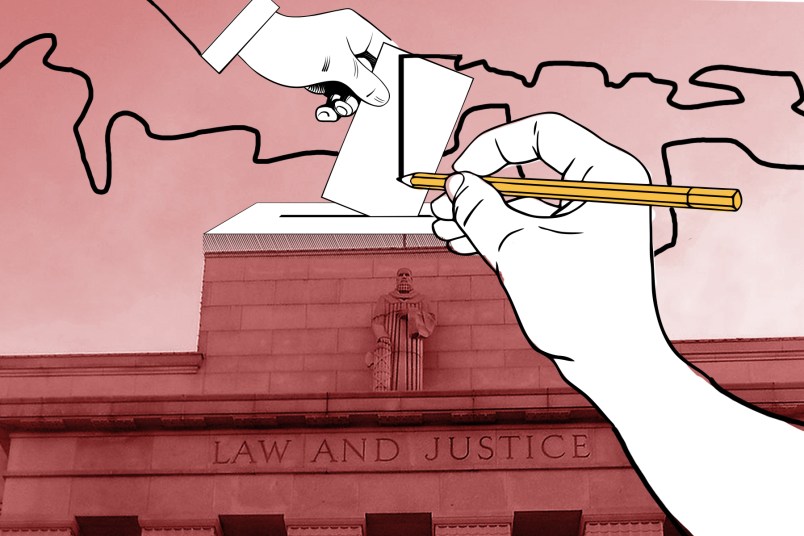The North Carolina Supreme Court became much more conservative after the 2022 midterms. On Friday, the newly minted justices flexed that power to overturn the court’s own months-old decision knocking down maps that were egregiously gerrymandered by the Republican state legislature.
The right-wing majority cloaked the decision in highfalutin language, but the decision is nakedly political. Now the Republican legislature knows that it can continue to manufacture its way into a permanent majority — regardless of the will of its voters — and that the state’s highest court won’t stop it.
“Here, a Democratic-controlled Court carried out its sworn duty to uphold the state constitution’s guarantee of free elections, fair to all voters of both parties,” liberal North Carolina Supreme Court Justice Anita Earls wrote in her blistering, 70-page dissent. “This decision is now vacated by a Republican-controlled Court seeking to ensure that extreme partisan gerrymanders favoring Republicans are established.”
This decision will also reverberate up to the U.S. Supreme Court, which heard oral arguments on this case in December. The newly conservative North Carolina bench took power after that, and agreed to rehear the case in a shockingly partisan move, putting the Supreme Court’s role in limbo. The Court in early March asked for further briefing on how it should proceed.
North Carolina legislators had premised much of their original argument on the independent state legislature theory, an obscure wisp of an idea seized on by the right-wing legal world to try to help then-President Donald Trump hold on to the White House in 2020. It maintains that only state legislatures — to the exclusion of state courts, constitutions and governors — can administer federal elections in their states, which includes drawing congressional maps. If the Supreme Court cosigns it, the theory could upend American elections. But some still argue it’s better to have a decision from the Supreme Court on the theory now, rather than in pre- or post-2024 election litigation.
Earls, joined by the only other liberal, Justice Michael Morgan, made no attempt to muddy the partisan forces behind Friday’s decision.
“Let there be no illusions about what motivates the majority’s decision to rewrite this Court’s precedent,” she wrote. “Today’s result was preordained on 8 November 2022, when two new members of this Court were elected to establish this Court’s conservative majority.”
“To the Court’s new majority, the parties’ briefing after rehearing was granted did not matter,” she added. “The oral argument held after rehearing was granted did not matter. The merits of Plaintiffs’ arguments do not matter. For at stake in this case is the majority’s own political agenda. Today, the Court shows that its own will is more powerful than the voices of North Carolina’s voters.”
Read the ruling here:



